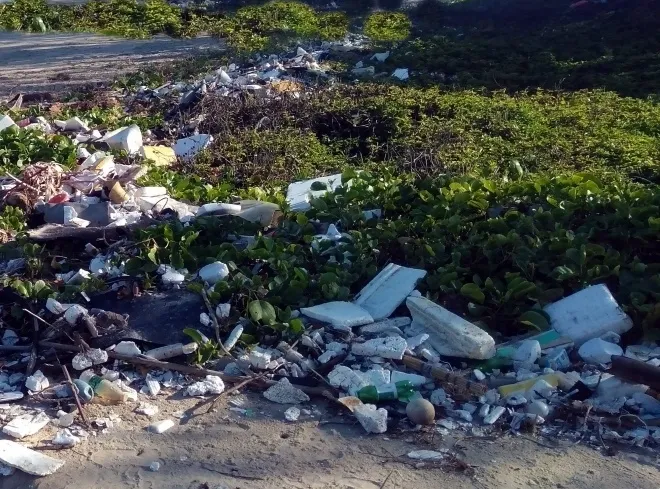What Actions Are Being Taken After Plastic Was Discovered in a Deceased Elephant in TN?

Synopsis
Key Takeaways
- Immediate action is needed to stop waste dumping.
- Wildlife protection is at risk due to poor waste management.
- Increased monitoring of vulnerable areas is crucial.
- Community involvement is essential for effective solutions.
- Awareness campaigns can help mitigate human-wildlife conflict.
Chennai, June 4 (NationPress) Following the tragic demise of a female elephant that consumed plastic waste, the Coimbatore Forest Division in Tamil Nadu has made a strong call to local authorities to cease the dumping of waste near forest peripheries immediately.
The elephant was discovered lifeless close to the Maruthamalai foothills, having ingested plastic bags and leftover food from an open waste site.
Forest officials and wildlife advocates have attributed the rising human-wildlife conflict to inadequate waste management practices by nearby civic bodies, which attract wild animals into human habitats. A forest department representative stated, “Open dumping is detrimental to animal health and heightens the risk of hazardous interactions between humans and animals.”
Letters have been dispatched to the Block Development Officers (BDOs) of Periyanacikenpalayam and Thondamuthur, pressing for immediate action to stop garbage disposal along forest borders and to clear existing waste to protect wildlife.
Officials cautioned that once wild elephants identify dumps as food sources, their return is likely. “Food waste, particularly with elevated salt levels, poses significant health threats to elephants,” the official noted.
While the forest department has urged civic agencies to take urgent measures, farmers have expressed dissatisfaction over the department’s lack of effectiveness in preventing wild elephants from encroaching on agricultural lands, even those far removed from forested areas.
In response, forest authorities have ramped up patrols in at-risk zones. “We have assigned night personnel to supervise and deter elephant movement near the old dump site in Maruthamalai,” remarked a range officer.
Increased monitoring is also being conducted in locations such as Pannimadai, Veerapandi, Varapalayam, and Thadagam, aiming to restrict elephants from scavenging in human territories.
The department is collaborating with NGOs, volunteers, and staff from the Hindu Religious and Charitable Endowments (HRCE) Department to initiate awareness campaigns.
An extensive anti-dumping initiative is planned for June 5, aligning with World Environment Day. Forest officials highlighted the necessity for a unified effort among civic bodies, residents, and wildlife authorities to avert further wildlife losses due to negligence and to foster safer coexistence between humans and animals.








